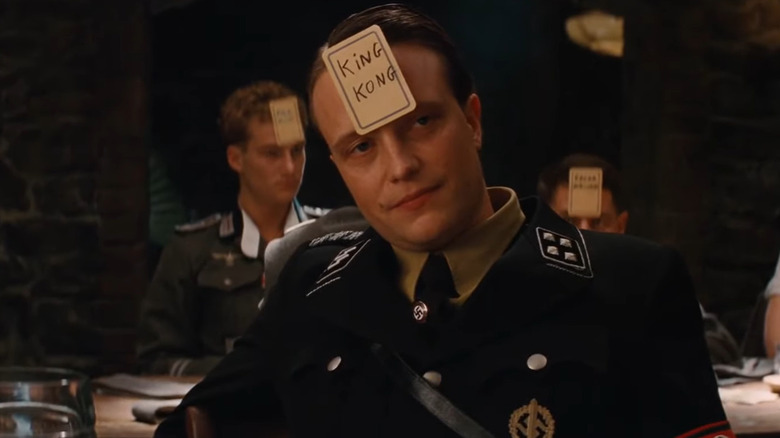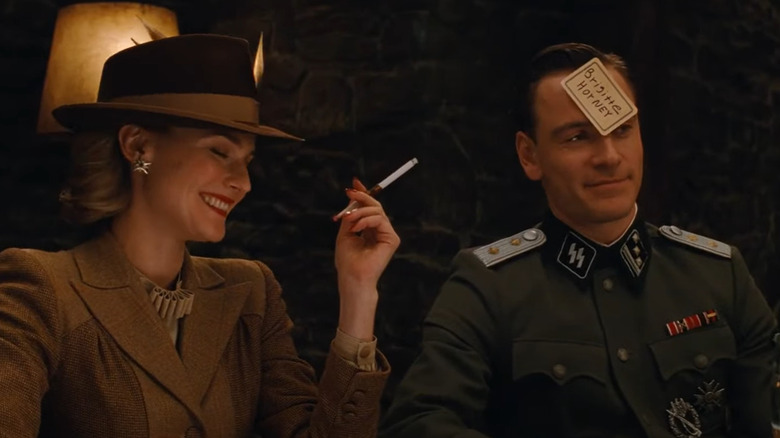Why Quentin Tarantino Wanted Inglourious Basterds To Avoid 'Silly War-Movie Clichés'
Considering how "Inglourious Basterds" ends, it might be a little surprising to learn that writer/director Quentin Tarantino did in fact care about the movie's sense of realism. Sure, the movie takes some creative liberties with its decision to let Hitler get machine gunned to death in a movie theater around a year before his actual demise, but it's also quick to subvert the usual unrealistic tropes you'd see in a typical war movie.
"I wanted to stay away from all the silly war-movie clichés that I never bought into," Tarantino explained in a 2009 interview for Rotten Tomatoes. "You know, those scenes where a bunch of guys have to take out a guard, so they very lightly strangle him and that takes care of that... They kill a German soldier and all of a sudden, not only is there no blood on his uniform, or even a bullethole, but it miraculously fits them when they put it on!" Basically, these sort of clichéd moments are unrealistic, and when a movie goes around ignoring realism for the sake of the plot, it kills a lot of the suspense Tarantino was going for.
As a result, no such scene occurs in "Inglourious Basterds," even though large portions of the film involve its main characters pretending to be German soldiers. Not only is there no moment where an easily-dispatched German soldier's uniform miraculously fits a character, but the movie takes great pains to really highlight how difficult it is to successfully be a spy within a foreign country. In a lot of other war movies, a character knowing the enemy country's language would be all they need to blend in, but with Lt. Hicox (Michael Fassbender), the movie takes a far more grounded approach.
The subtleties of German culture
One of the most famous moments in the movie is the "three glasses" line, where Hicox signals "three" by using his index, middle and ring finger. While this is the normal way for a British person to signal the number, a German would typically use their thumb as the first finger. The moment Hicox does this, basically everyone in the bar seems to accept that a shootout is about to happen.
Although this was the point of no return for Hicox, it's clear that Major Hellström (August Diehl) had figured Hicox out far earlier. He figures it out because, as even the other drunken soldiers pick up on, Hicox's accent doesn't quite sound like a regular German's. To the average American's ear, Hicox sounds great, but just as it's usually easy for us to tell in conversation when English is someone's second language, the Germans at the bar quickly notice that Hicox isn't a native. Reaching Hicox's level in learning another language is an impressive feat, but it's not impressive enough.
This is something that continues throughout the final act, as the Americans' attempt to pass as Italians immediately turns out to be a terrible, foolish idea. Colonel Landa (Christoph Waltz) figures them out instantly, only letting them live because he's got his own scheme going on.
As crazy as "Inglourious Basterds" gets at times, it's a movie that's remarkably grounded when it comes to all four languages that are spoken throughout. It's a movie that understands that being a spy is far more difficult than just beating up an enemy guard and taking his uniform. It's something that requires a wild amount of familiarity with the enemy's culture, and Tarantino milks that for all the tension it's worth.

